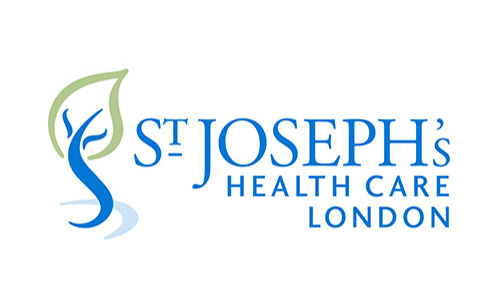Our programs and learning initiatives are designed to increase expertise at all levels of care and scope of practice. Our programs meet professional continuing-education requirements, and certificates will be issued upon successful completion of courses.
-
Fundamentals (Fundamentals)
-
Comprehensive Advanced Palliative Care Education (CAPCE)
-
Advanced Palliative Practice Skills (APPS)
-
Essential Pain Management (EPM)
-
Interprofessional Education
Case Based Learning ∷ e-Learning ∷ Practical Application
∷
Peer-to-Peer Sessions ∷ Tools
Fundamentals of Hospice Palliative Care
 The Fundamentals program is intended for all health care providers working or volunteering in the health care system who have an interest in developing his or her capacity in hospice palliative care.
The Fundamentals program is intended for all health care providers working or volunteering in the health care system who have an interest in developing his or her capacity in hospice palliative care.
The Fundamentals program was redesigned in 2017.
Comprehensive Advanced Palliative Care Education (CAPCE)
 The CAPCE program is designed to align with the Model to Guide Hospice Palliative Care: Based on National Principles and Norms of Practice (CHPCA 2002).
The CAPCE program is designed to align with the Model to Guide Hospice Palliative Care: Based on National Principles and Norms of Practice (CHPCA 2002).
CAPCE was developed in 2002 by the Palliative Pain and Symptom Management Consultation Program (PPSMCP) of Southwestern Ontario, and redesigned in 2013, 2017 and 2023.
The CAPCE program will be made available to Registered Nurses, Registered Practical Nurses and Nurse Practitioners who meet the eligibility criteria.
Note: The Fundamentals program must have been completed within the last seven (7) years ( ‑ ).
Advanced Palliative Practice Skills (APPS)
 The APPS program is an educational opportunity for Personal Support Workers (PSW's), Health Care Aides and Hospice Volunteers who are graduates of the Core Fundamentals of Hospice Palliative Care Program and who are currently working or volunteering in palliative care.
The APPS program is an educational opportunity for Personal Support Workers (PSW's), Health Care Aides and Hospice Volunteers who are graduates of the Core Fundamentals of Hospice Palliative Care Program and who are currently working or volunteering in palliative care.
Note: The Fundamentals program is a prerequisite for the APPS program.
Essential Pain Management (EPM)
 The focus of the EPM program is on the Pharmacological Management of Pain. Pain assessment, management, and evaluation are foundational skills for nurses working in any practice setting. EPM aims to equip nurses with a foundational knowledge base and skills around pain management, from a palliative care approach, that can be applied to your practice.
The focus of the EPM program is on the Pharmacological Management of Pain. Pain assessment, management, and evaluation are foundational skills for nurses working in any practice setting. EPM aims to equip nurses with a foundational knowledge base and skills around pain management, from a palliative care approach, that can be applied to your practice.
Informed Consent for a Plan of Treatment for CPR CPR)
 The CPR Algorithm to develop a plan of treatment for Cardio-pulmonary resuscitation (CPR) was developed by the Grey Bruce Integrated Health Coalition in March 2009, and last revised in March 2018 by the Southwest Palliative Pain & Symptom Management Consultation Program (PPSMCP).
The CPR Algorithm to develop a plan of treatment for Cardio-pulmonary resuscitation (CPR) was developed by the Grey Bruce Integrated Health Coalition in March 2009, and last revised in March 2018 by the Southwest Palliative Pain & Symptom Management Consultation Program (PPSMCP).
- For health care professionals (HCP) to understand the process, professional and legal obligations, and actions required in developing a plan of treatment for Cardio-pulmonary resuscitation (CPR).
- To ensure an understanding that whether or not CPR is being offered, there must be a discussion with the capable patient or substitute decision maker[s] (SDM[s]) to meet obligations for informed consent.
- To share and understand the resource: Algorithm for Development of a Plan of Treatment related to CPR and Completion of the DNR Confirmation Form.
Interprofessional Education
 Pallium Canada has award-winning Learning Essential Approaches to Palliative Care (LEAP) courses provide practical, inter-professional and evidence-based training and tools in the palliative care approach across multiple health care settings and specialty areas.
Pallium Canada has award-winning Learning Essential Approaches to Palliative Care (LEAP) courses provide practical, inter-professional and evidence-based training and tools in the palliative care approach across multiple health care settings and specialty areas.


